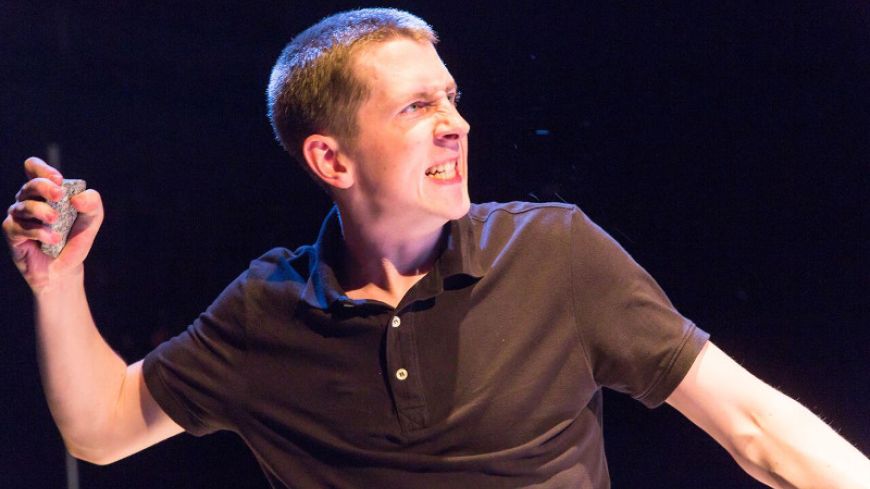
Benjamin Sinclair (Daniel O’Keefe) has a problem in ‘Martyr’; the word he lives in isn’t biblical enough for him. Benjamin might prefer not ‘Christian’ enough, but that would be to do both some disservice to others professing a less straitened form of faith to his, and also to suggest that this production, mounted jointly by the Actors Touring Company and Unicorn Theatre was somehow to do with religion.
Unicorn are known as one of England’s major purveyors of theatre for young people, and both setting and script suggest a production intended to tour and provoke discussion and reflection.
Of what, this reviewer was never entirely clear. Benjamin’s adolescent outbursts against a world that both denies the existence of a supreme being and rejects his literal (and highly selective) interpretations of scripture have clear parallels in aspects of fundamentalist Islam, but these are barely touched on here, while the extensive Biblical quotation of the script is not countered or complemented by exegesis.
We remain stuck, in short, in a kind of theological maelstrom, from which it becomes impossible for any of the characters to emerge with either dignity or credibility. Our sympathy for Benjamin’s adolescent stumblings toward any sort of personal integrity are undercut by his manipulative bullying, while the adults around him are mired in their own all too human inconsistencies.
All of which would be perfectly acceptable were it not for an underlying feeling the confused albeit well-intentioned interventions of the adult characters are as much a reflection of the confusions within Marius von Meyerburg’s script as they may be attempts to show our own contradictory responses to expressions of belief.
In a contemporary secular context it is difficult to recognise how much of the integral material culture of faiths we become unable to fully interpret the further we distance ourselves from the context in which these have been created, and ‘Martyr’ itself feels equally removed form whatever context may have brought it into being.
In times such as ours, we badly need exposition which may stimulate us to think more deeply about what faith may mean to those who believe in it, but ‘Martyr’ feels too simplified and sterilised a response to a complex set of messy questions.
15-17 Oct

